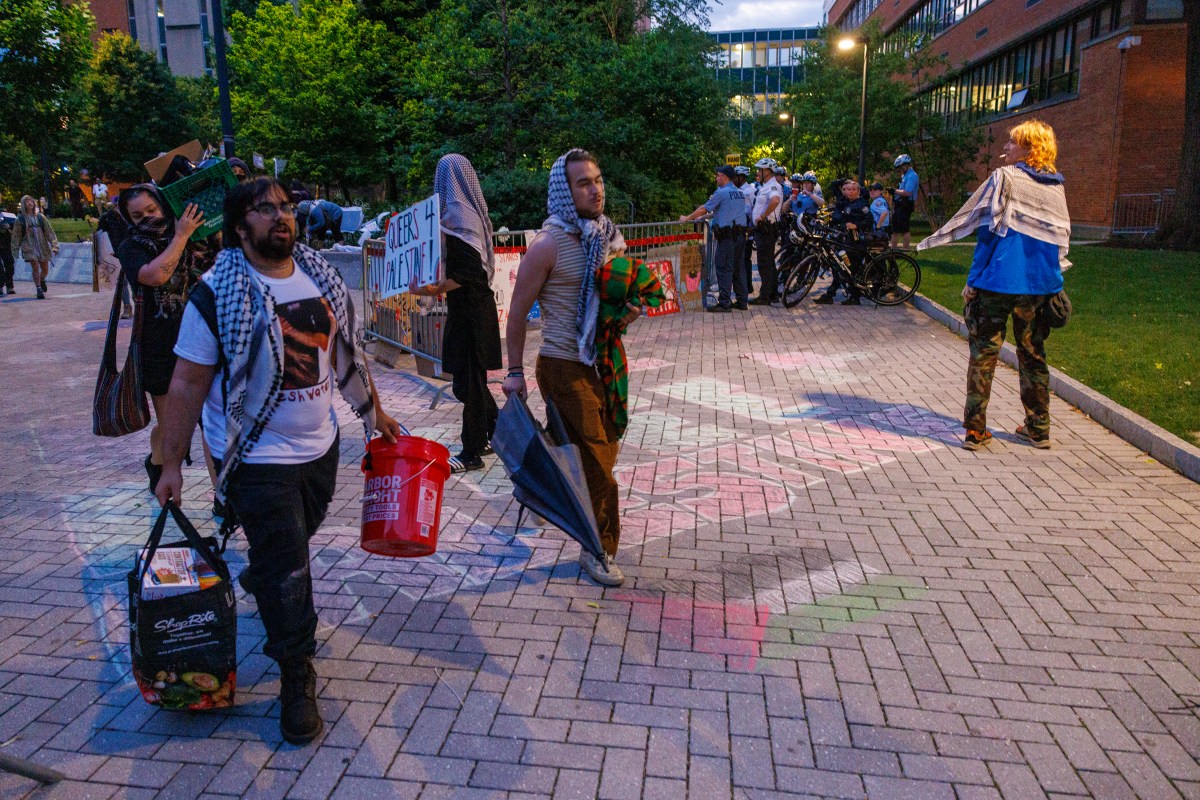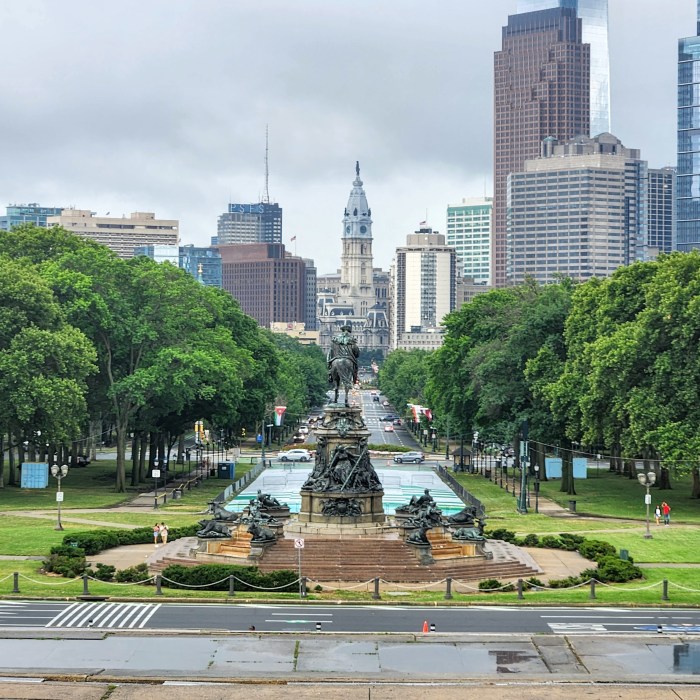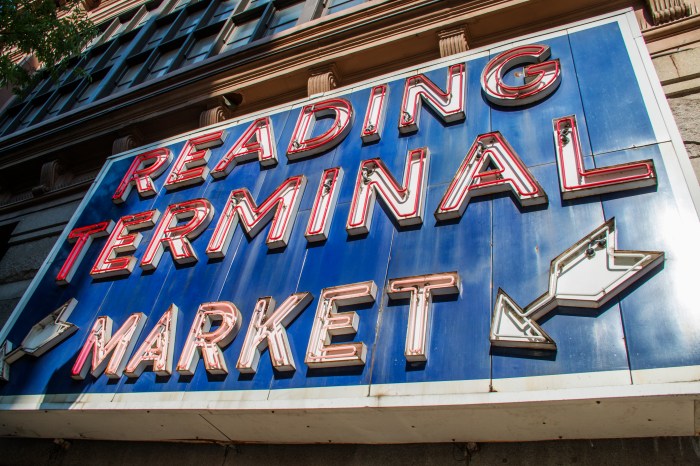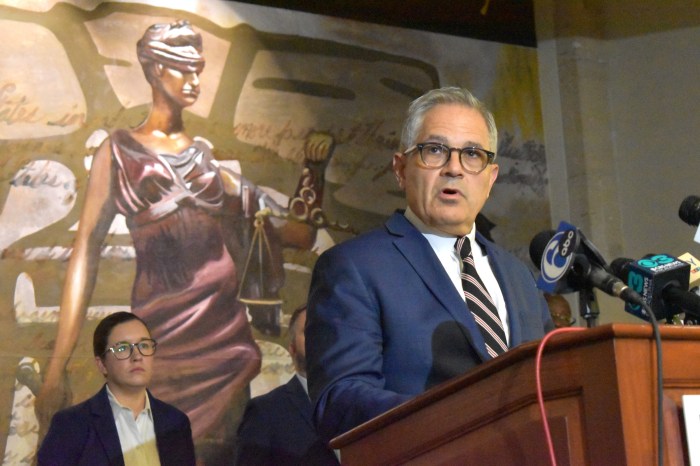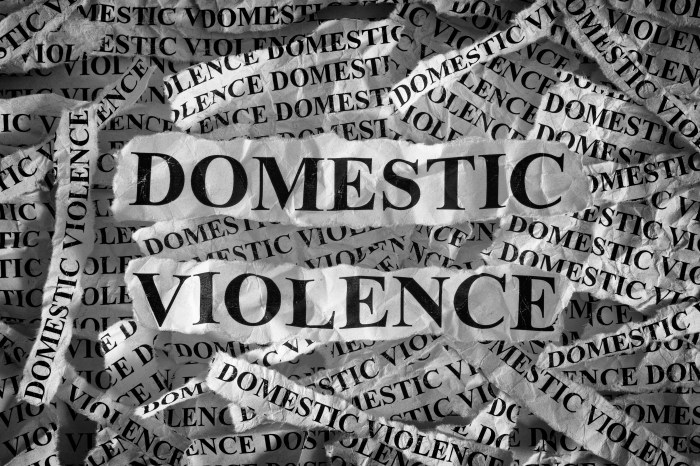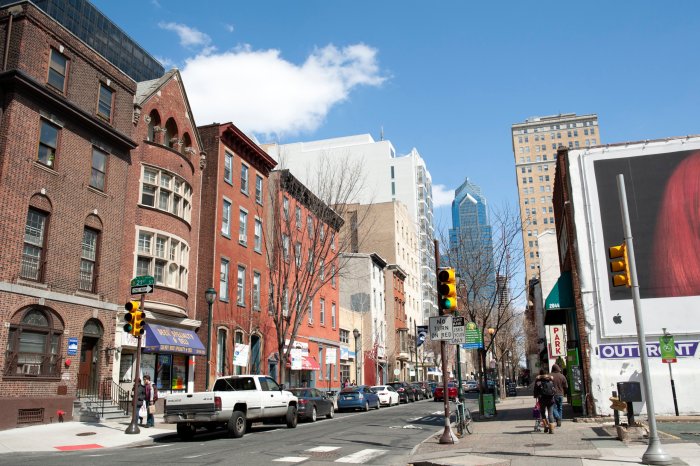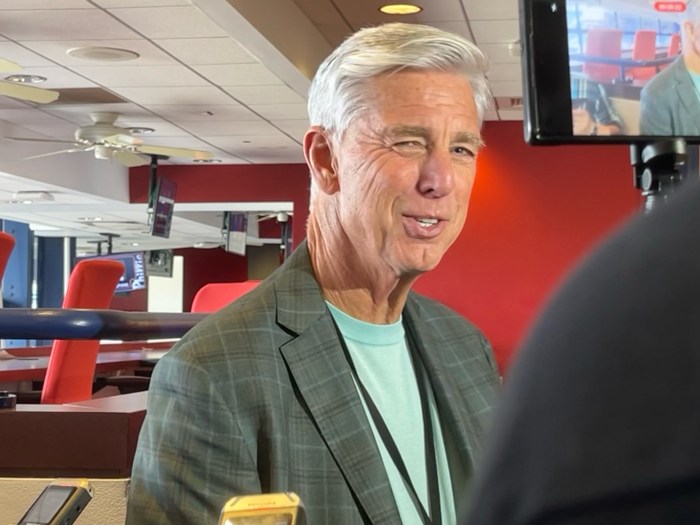Protesters packed up their belongings and left a pro-Palestinian encampment at Drexel University on Thursday after the school announced a decision to have police clear the encampment.
University President John Fry said in a statement that he decided to have campus police and public safety officers join Philadelphia police in clearing the encampment as peacefully as possible. News outlets reported that police gave protesters a warning to clear the encampment and the protesters left.
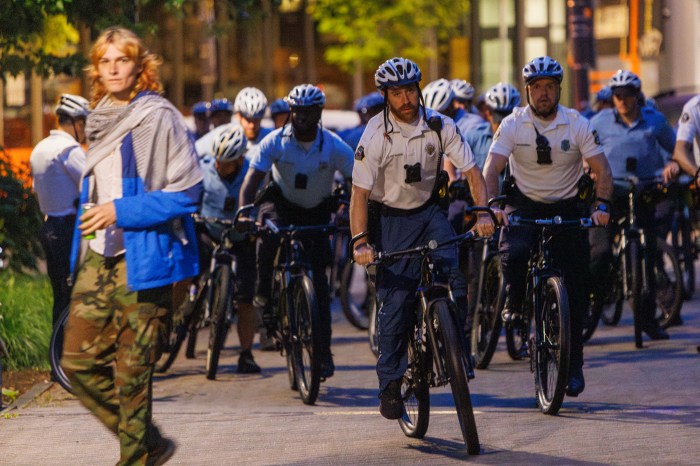
Fry said the university is committed to protecting the community members’ right to assemble peacefully and express their views, but he has the responsibility and authority to regulate campus gatherings to ensure safety and fulfill the mission to educate students.
“An unauthorized encampment that involves large numbers of people unaffiliated with Drexel trespassing on our campus is illegal,” Fry said. “The language and chants coming from this demonstration, underscored by protestors’ repugnant ‘demands,’ must now come to an end.”
Protesters gathered their belongings as dozens of officers on bicycles arrived around 5:20 a.m.. In less than a half hour only a few items remained on the Korman Family Quad where the 35-tent encampment had been, the Philadelphia Inquirer reported.
“The campers picked up their belongings for the most part and left by their own free will,” Philadelphia Police Sgt. Eric Gripp said.
In a statement posted online early Thursday, protest organizers said they had launched a “strategic retreat” to ensure the “safe passage of all people and resources out of the liberated zone.” They said that neither city nor campus police delivered a warning to clear the encampment but rather “we warned ourselves.”
The organizers also said “we succeeded in our aim to disrupt — a university-wide lockdown imposed by cowardly leadership and an excessive police presence drained university resources for six days.” The group also vowed to stay active, writing: “We won’t back down, we will return, and we will come back stronger.”
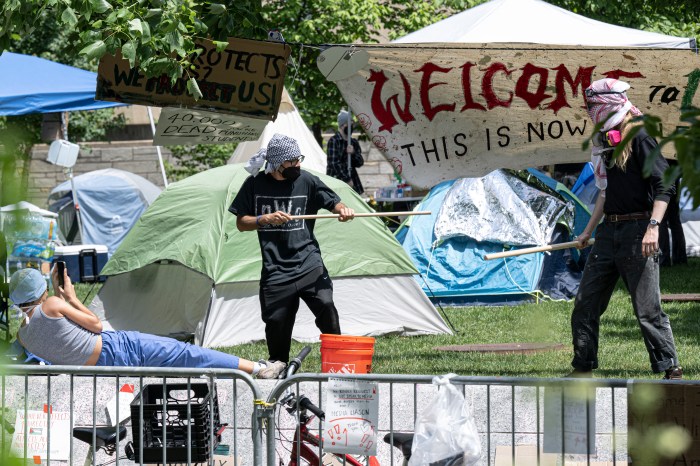
The encampment had persisted despite Fry’s threat earlier this week to have it cleared. Fry said Tuesday that classes would be held virtually for a third day on Wednesday after administrators tried to open a line of communication to the protesters but were rebuffed. News outlets reported that the university announced Wednesday night that the campus was returning to normal operations Thursday.
In his statement early Thursday, Fry said previous requests for protesters to disperse had been ignored, but he was asking Drexel affiliates to leave the encampment so police could “escort any remaining trespassers off our campus.”
A wave of pro-Palestinian tent encampments on campuses has led to over 3,000 arrests nationwide.
Harvard University held its commencement Thursday following a weekslong pro-Palestinian encampment. Hundreds of students in graduation robes walked out chanting “Free, Free Palestine” a day after the school announced that 13 Harvard students who participated in a protest encampment would not be able to receive diplomas alongside their classmates.
Also Thursday, the leaders of Northwestern University and Rutgers University testified before the House Education and Workforce Committee where they defended their decisions to end pro-Palestinian encampments through negotiations rather than police force. The school leaders told committee members that they were able to defuse any danger without ceding ground to protesters.
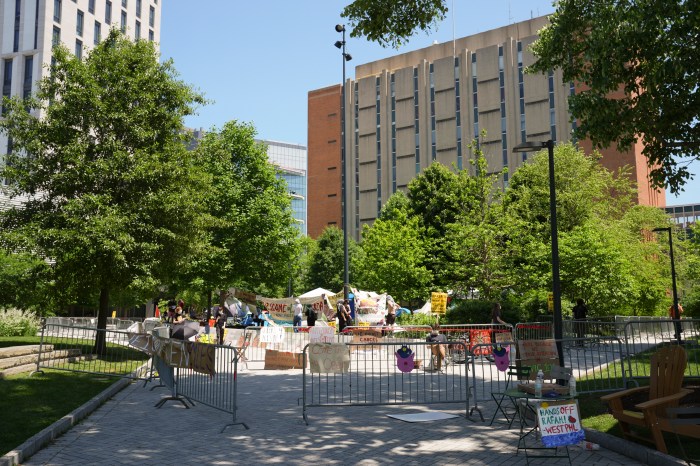
Northwestern President Michael Schill and Jonathan Holloway of Rutgers were called before the committee as part of a series of Republican-led hearings examining how colleges have responded to allegations of antisemitism. Also testifying was Gene Block, chancellor of the University of California, Los Angeles, which has come under scrutiny for a delayed police response to violence between pro-Palestinian protesters and counterprotesters.
A new pro-Palestinian encampment appeared on the UCLA campus as Bock testified Thursday. The encampment was abandoned when law enforcement arrived midday and declared it an unlawful assembly. A small group of demonstrators later staged a sit-in inside a nearby building before officers cleared them out.



